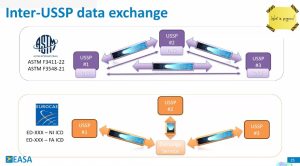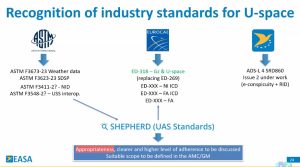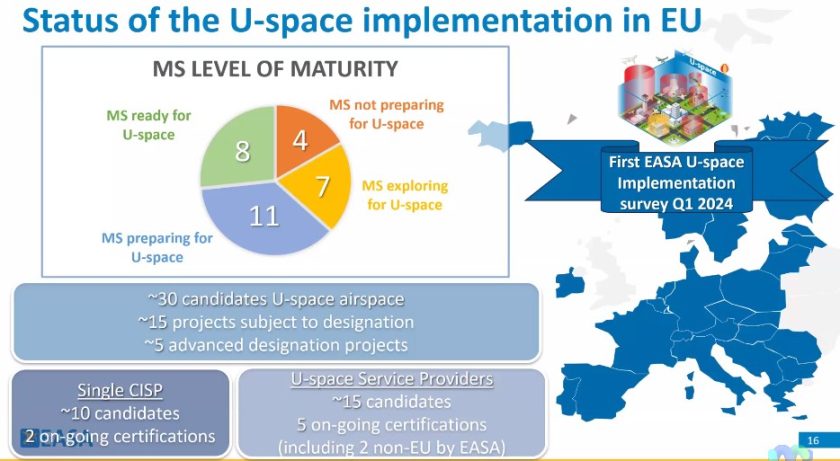Next month the European Union Aviation Safety Agency (EASA) will undertake its first two inspections of U-space implementation plans by Member States as part of its strategy to accelerate the adoption of U-space throughout the European Union.
According to Stephane Vaubourg, Drones Project Manager at EASA, speaking at the agency’s Innovative Air Mobility Implementation Forum today, eight Member States are ready to implement U-space but four have made little or no progress; five U-space service providers are actively undergoing certification and ten centralised information service providers are candidates for certification.
The EASA inspectors will look at how far Member States plans are aligned with the EU U-space regulatory frameworks – seven Member States are potentially non-compliant with the regulation, according to Stephane Vaubourg – and assess how far the roles and responsibilities of each stakeholder are being defined and the soundness of the procedures of the competent authorities, including an assessment of the certification and oversight of the undertakings. EASA plans to carry out three inspections a year, each year, from 2025.
At the same time, EASA will carry on further U-space regulatory activities to address some of the uncertainties and issues which have been identified as part of a survey of implementation carried out earlier this year. These include uncertainties over interoperability of systems, the on-boarding process for U-space service providers, remote identification standardisation and business models for stakeholders and certification criteria.
The RMT0784 roadmap will see a new batch of Acceptable Means of Compliance (AMC) and Guidance Material (GM) published next year which will address issues around flight authorisation, airspace risk assessment and data exchange (see tables below).
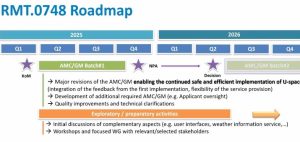
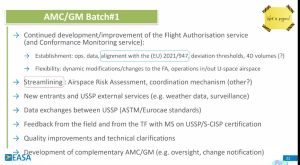
And Stephane Vaubourg introduced EASA’s proposals for implementing a decentralised or federated U-space system along the lines of the Federal Aviation Administration’s Dallas Key Site programme, with USSPs sharing UTM safety data via ASTM, EUROCAE and ADSL-4 industry standards.
